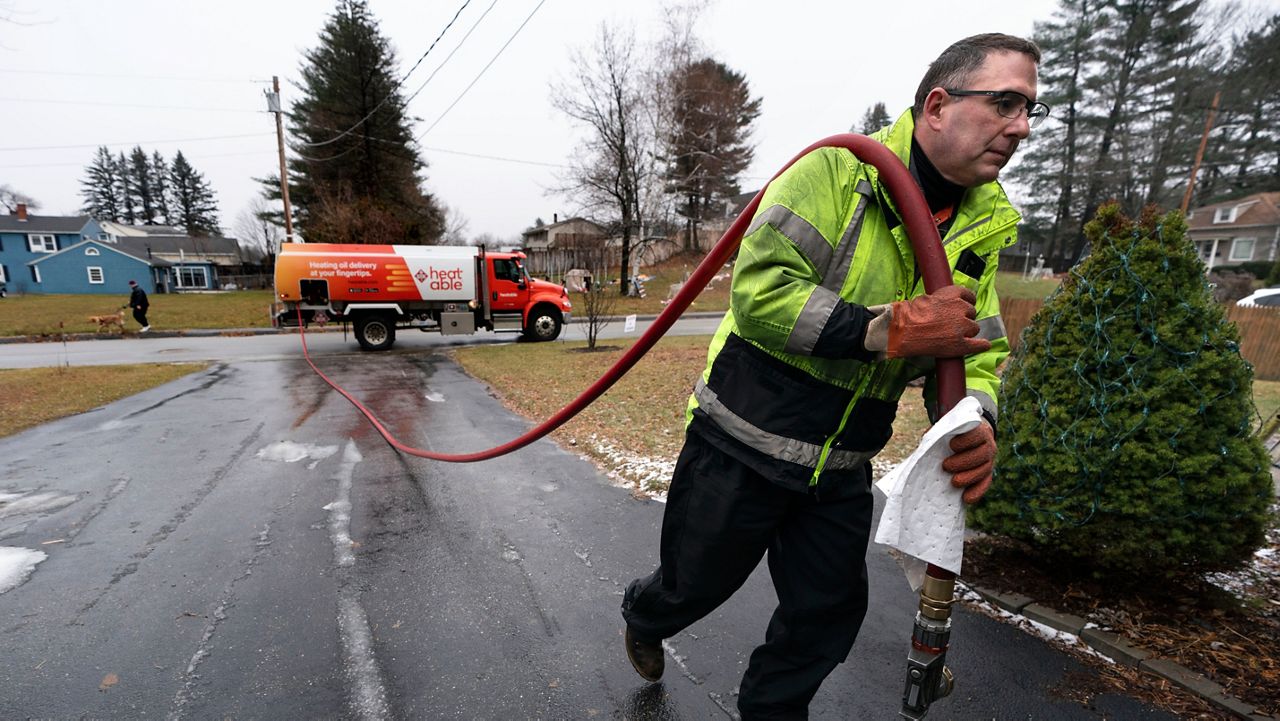As colder weather sets in across parts of the United States, some lower-income Americans may have to decide between heating their homes or feeding their families due to higher energy prices.
Assistance with energy costs is available through a federally funded program called Low Income Home Energy Assistance Program (LIHEAP), but funding hasn’t yet been released, prompting calls from lawmakers demanding the Biden administration take action.
For the last several weeks, lawmakers from Massachusetts, Maine, Wisconsin, Ohio and other state congressional delegations have come together to get LIHEAP funds released immediately.
This week, a group of lawmakers, including Massachusetts Reps. Jim McGovern and Lori Trahan and Maine Reps. Jared Golden and Chellie Pingree, sent a letter directly to President Joe Biden asking him to release stockpiles from the Northeast Home Heating Oil Reserve to help lower costs for consumers.
The lawmakers pressed Biden to take "swift" action in addressing this issue as winter looms, writing: "Families should not be forced to make hard choices about keeping loved ones warm and healthy and putting food on the table."
"We stand ready to work with you and your administration to take steps necessary...so that families throughout our states are not faced with this impossible choice," the lawmakers added.
Last week, a bipartisan group of lawmakers, including Massachusetts Sens. Elizabeth Warren and Ed Markey, Maine Sen. Susan Collins, Hawaii Sen. Mazie Hirono of Hawaii and California Sen. Dianne Feinstein, sent a letter to Health and Human Services Secretary Xavier Becerra calling on the agency to release LIHEAP funds "as quickly and at the highest level possible."
The lawmakers cited the fact that a recently passed short-term government funding bill included an additional $1 billion in funding for the program.
"It is critical that this funding, as well as the significant base funding available under the CR, is distributed as quickly as possible so it reaches these households in time for the winter heating season," they wrote.
A spokesperson from the Department of Health and Human Services, which runs the program, told Spectrum News that the agency "is working expeditiously to award LIHEAP funding to states, tribes, and territories so that Americans have this critical resources without delay as we enter the winter months."
Massachusetts residents Cathy DiPilato and Mindy Shoestock are both single moms who say LIHEAP, which assists people in meeting income guidelines to cover a portion of their home energy costs, has helped them make ends meet in the fall and winter.
“LIHEAP is helping me to pay the cost of the heating bill so that I'm not going to freeze in the winter," Shoestock told Spectrum News. "My kids aren't going to freeze in the winter."
For DiPilato, those expenses included the purchase of a new furnace after her old one could no longer be repaired.
Both women know the program will be available this year to offset some of their expenses, but they worry how soon they can expect to see the aid.
"With them going up with such a high percentage. I'm nervous, I am scared," Shoestock added. DiPilato reiterated the same by saying, “It's very frightening."
The Worcester Community Action Council says it's seen a 200% increase in applications for LIHEAP aid this year. Amother Massachusetts-based organization, the Berkshires Community Action Council, says it has already added more than 450 new clients this fall. All this before this year's seasonal program begins Nov. 1.
Shoestock and DiPilato hope the president and his administration will grant those requests, but in the meantime, they are encouraging others to apply for assistance.
Shoestock says it benefits families and "helps the elderly, it helps single people and people with fixed incomes."
Spectrum News has reached out to the White House for comment.



